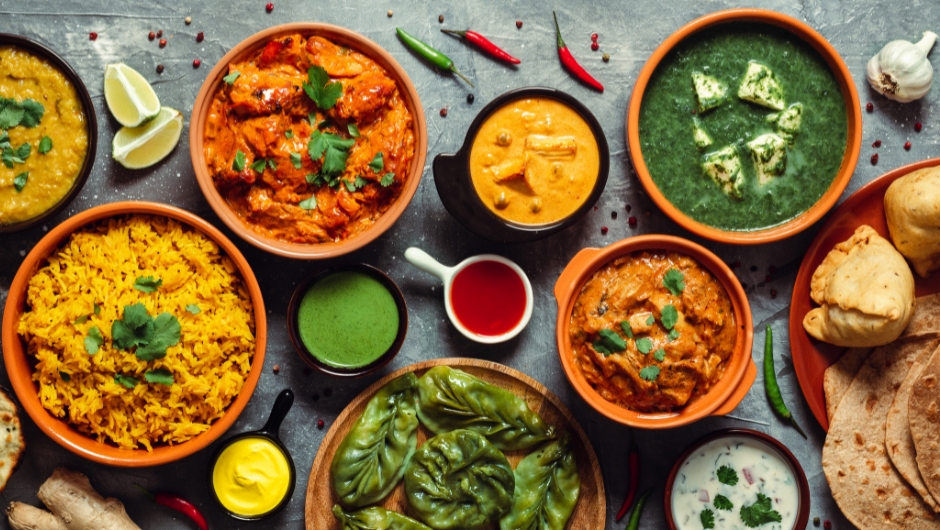The Truth About Indian Food

Most Indians believe that eating home-cooked food automatically means eating healthy. But the truth is far more complex. A recent study by ICMR-INDIAB reveals that 62% of the average Indian diet comes from carbohydrates, mainly from white rice, refined flour (maida), and processed foods. Meanwhile, only 12% of the total diet consists of protein. This imbalance in our daily nutrition is one of the main reasons behind the rising cases of obesity, Type 2 diabetes, and other lifestyle-related diseases.
Not Carbs, but Poor-Quality Carbs
Carbohydrates are essential for energy, but the type of carbohydrates you eat determines their effect on your health. White rice, refined flour, biscuits, sweets, and snacks made from processed ingredients are all refined carbs. These foods are stripped of fiber, vitamins, and minerals during processing, leaving behind calories with almost no nutrition.
When most of your diet comes from such refined carbohydrates:
- Your blood sugar levels rise and fall rapidly, leading to fatigue and hunger.
- The pancreas overproduces insulin, increasing the risk of insulin resistance.
- Excess glucose in the blood is stored as fat, resulting in weight gain and obesity.
- Over time, this leads to Type 2 diabetes, high cholesterol, and heart disease.
Therefore, the issue is not that Indians eat chapatti or rice—it is that they eat only chapatti, rice, and other carb-heavy foods, with little to no focus on protein or fiber.
Understanding the Importance of Protein
Protein is a fundamental building block for muscles, tissues, hormones, and enzymes. It also helps control hunger by improving satiety. When your diet lacks protein, your metabolism slows down, your muscle mass decreases, and your fat percentage increases.
An ideal Indian plate should have a balance of carbohydrates, proteins, fats, and fiber. Roughly one-third of every meal should come from protein sources. Unfortunately, most traditional diets include only minimal protein, often limited to a small serving of dal once a day.
Common Vegetarian Sources of Protein
India has many rich vegetarian protein options that are easy to include in daily meals:
- Pulses and lentils: Moong dal, masoor dal, chana dal, rajma, lobia.
- Dairy and alternatives: Paneer, milk, curd, tofu, whey protein.
- Nuts and seeds: Almonds, peanuts, flaxseeds, chia seeds, sunflower seeds.
- Whole grains: Oats, quinoa, and millets like ragi, bajra, and jowar.
- Vegetables: Broccoli, peas, spinach, and sweet corn.
A diet rich in these sources not only improves protein intake but also increases fiber, minerals, and healthy fats.
How Processed Foods Are Destroying Traditional Eating Habits
Urbanization and changing lifestyles have shifted eating habits drastically. Biscuits, namkeen, sugary beverages, instant noodles, and packaged snacks have replaced traditional meals. These foods are high in refined carbohydrates, sodium, and trans fats but extremely low in nutrients.
Consuming them regularly affects gut health, leads to nutrient deficiencies, and disturbs hormonal balance. Moreover, children and young adults who rely heavily on processed snacks are more likely to develop obesity and lifestyle diseases early in life.
Building a Balanced Indian Plate
A healthy plate should include a combination of whole grains, protein-rich foods, healthy fats, and plenty of fruits and vegetables. The goal is to provide sustained energy without spiking blood sugar levels.
Here is a sample day plan that focuses on improving nutritional quality:
Early Morning:
- On an empty stomach, drink 2 glasses of lukewarm water while sitting in a squatting position.
- Take one neem and one turmeric tablet for detoxification and immunity support.
Meal 1 (Morning Snack):
- A handful of soaked almonds, walnuts, and raisins.
Meal 2 (Breakfast):
- Sprouts or chana-corn salad with a whole-grain cheese sandwich.
Meal 3 (Mid-Morning Fruits):
- Seasonal fruits based on your body weight (approximately 600–700 grams per day).
- Avoid eating anything for 2 hours after consuming fruits to allow proper digestion.
Meal 4 (Lunch):
- Dal, seasonal vegetables, 2–3 rotis made from whole wheat or millets, and curd.
- Add cumin powder, black pepper, and water to curd to improve digestion.
Meal 5 (Evening Snack):
- Makhana (fox nuts), roasted peanuts, or herbal tea made with Brahmi, Shankhpushpi, chamomile, or ginger-basil-fennel-cardamom.
Meal 6 (Dinner):
- Eat before sunset whenever possible.
- Focus on lentils, legumes, and vegetables. Limit rice or roti portions to smaller quantities.
Meal 7 (Before Bed):
- A cup of warm milk with half a teaspoon of A2 desi cow ghee for better digestion and sleep.